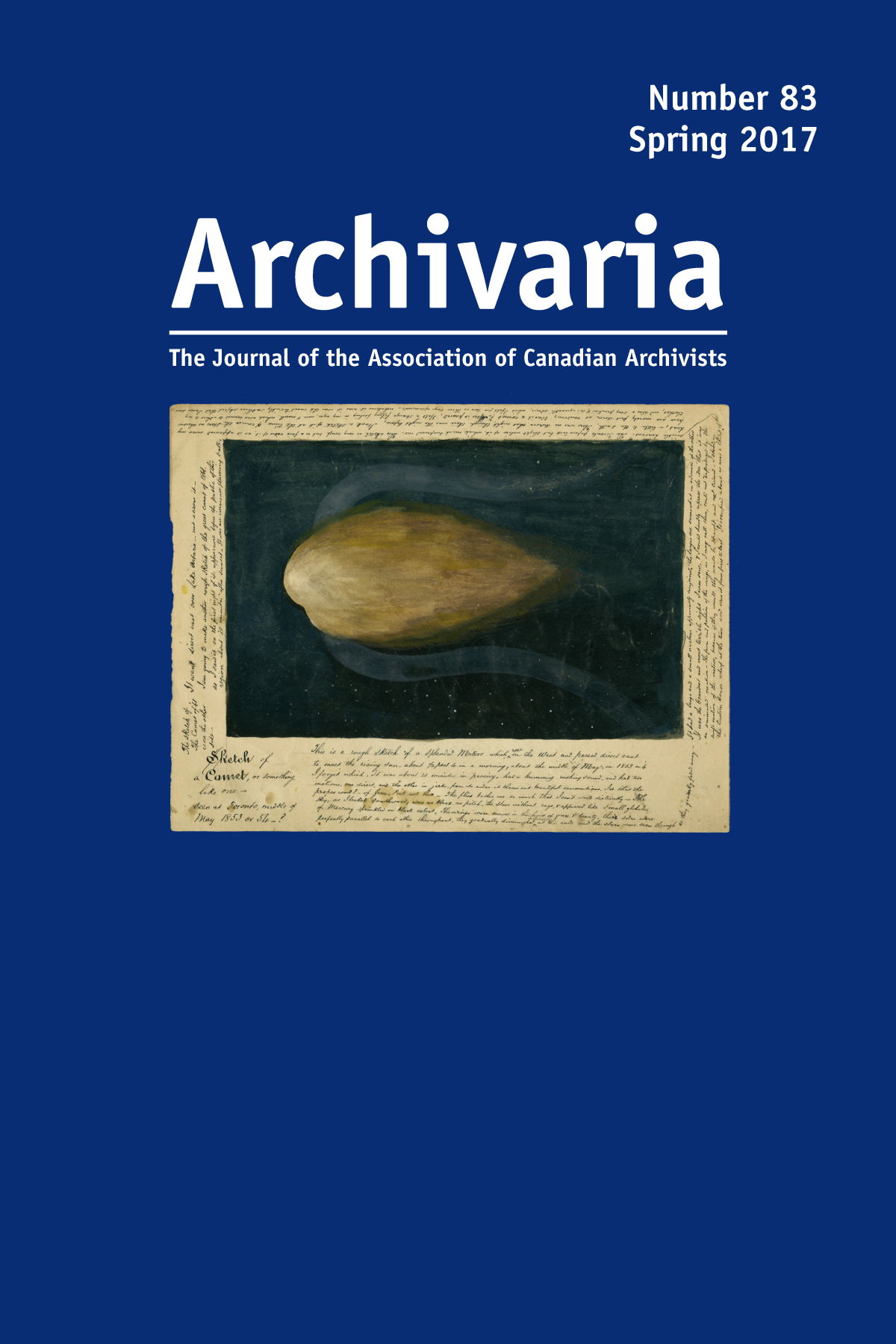Historians and Web Archives
Abstract
Since the 1990s, the Web has increasingly become the location where we carry out our activities and generate primary and secondary records. Increasingly, such records exist only on the Web, with no complementary or supplementary records available elsewhere. While web archives began to preserve this legacy in 1991, web history has not yet emerged as a fully developed field. One explanation may be historians’ concerns that they will not be able to replicate their historical research process when using web archives, and may not find essential and authoritative records. The article’s first section proposes a thought experiment in which a future historian in 2050 wants to research web history using web archives as they existed in 2015. She relies on the customary historical research process through which historians choose topics and search, browse, and contextualize sources in depth and iteratively. The experiment fails when our historian is unable to locate appropriate repositories and authoritative records without resorting to the live Web of 2015. The second section then analyzes 21 eminent web archives in 2015 and issues that may have an impact on historical research. Most web archives are apparently akin to libraries of information resources. Archivists and historians, however, need web repositories to contain and make accessible essential web records of enduring cultural, historical, and evidentiary value. The article suggests that historians may once again prove invaluable in figuring out basic archival issues related to web records and archives, just as they helped shape archival policies a couple of centuries ago.
RÉSUMÉ
Depuis les années 1990, le web comme lieu où nous menons nos activités et générons nos documents de source primaire et secondaire a pris une importance croissante. De plus en plus, de tels documents existent seulement sur le web, sans qu’aucun autre document complémentaire ou supplémentaire ne soit disponible ailleurs. Alors que les archives du web ont commencé à conserver ce patrimoine en 1991, l’histoire du web comme discipline bien établie n’a pas encore vu le jour. Une explication possible pourrait être l’inquiétude qu’ont les historiens qu’ils/elles ne pourront pas reproduire leur méthode de recherche historique en se servant des archives du web, et ne pourront pas trouver les documents essentiels et qui font autorité. La première partie de l’article propose d’imaginer une historienne en 2050 qui veut chercher l’histoire du web en se servant des archives de l’Internet telles qu’elles existaient en 2015. Elle se sert de la méthode de recherche historique habituelle à partir de laquelle les historiens choisissent un sujet et effectuent leur recherche, furètent et contextualisent leurs sources de façon itérative et poussée. L’expérience connaît un échec quand l’historienne est incapable de repérer les dépôts d’archives appropriés et les documents qui font autorité sans avoir recours au web tel qu’il existait en 2015. La deuxième partie analyse vingt-et-une archives du web en 2015 et les enjeux qui pourraient avoir un impact sur la recherche historique. La plupart des archives sur le web sont, de toute apparence, semblables aux bibliothèques de ressources d’information. Les archivistes et les historiens, cependant, ont besoin de dépôts qui contiennent et qui rendent accessibles les documents essentiels du web qui ont une valeur durable culturelle, historique et de preuve. Cet article suggère que les historiens pourraient encore une fois être indispensables pour déterminer les questions archivistiques de base liées aux documents et archives du web, tout comme ils ont aidé à façonner les politiques archivistiques d’il y a quelques siècles.
Authors of manuscripts accepted for publication retain copyright in their work. They are required to sign the Agreement on Authors' Rights and Responsibilities that permits Archivaria to publish and disseminate the work in print and electronically. In the same agreement, authors are required to confirm that "the material submitted for publication in Archivaria, both in its paper and electronic versions, including reproductions of other works (e.g. photographs, maps, etc.) does not infringe upon any existing copyright." Authors of manuscripts accepted for publication retain copyright in their work and are able to publish their articles in institutional repositories or elsewhere as long as the piece is posted after its original appearance on archivaria.ca. Any reproduction within one year following the date of this agreement requires the permission of the General Editor.





